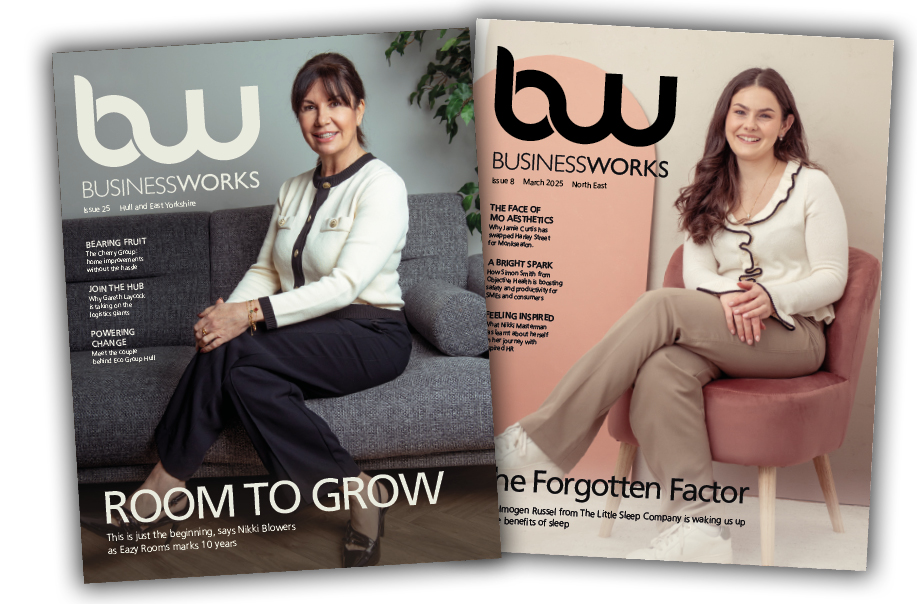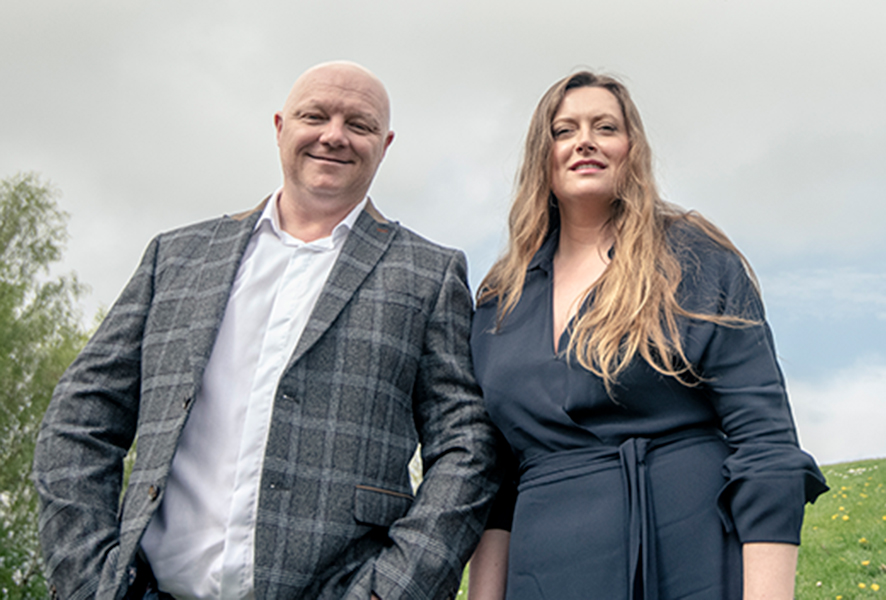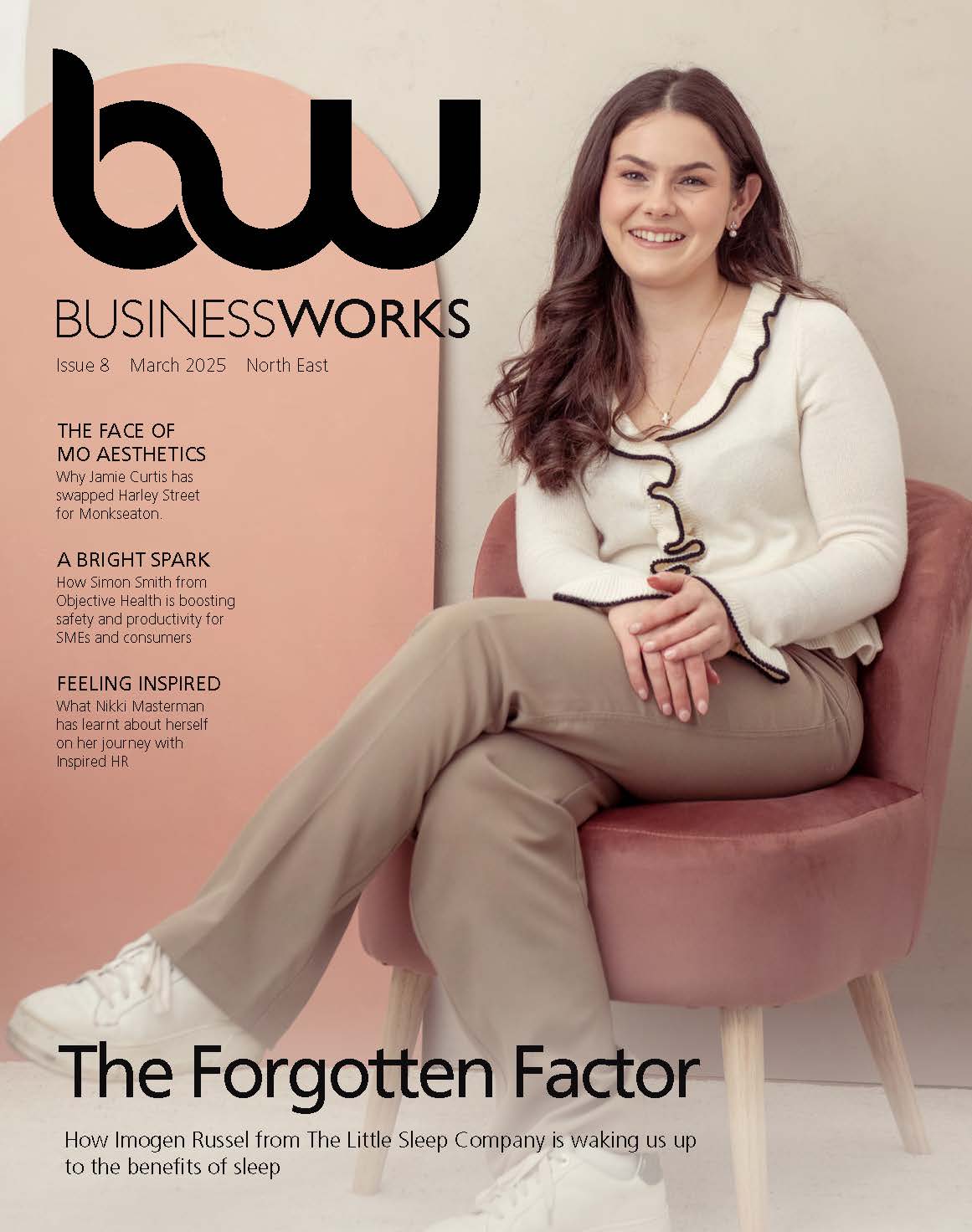Partners in life and business, Steven Mclean and Dr Charlotte Knight combine their expertise to deliver a range of respiratory testing and health and safety, first aid, mental health first aid, safeguarding and fire safety training to businesses across the UK. Here, they discuss the inception of Advanced Safety Group, and why companies and organisations must keep up-to-date with rules and regulations.
Tell us about your backgrounds and how they led you to establish Advanced Safety Group in 2020.
Steven: I have been in sales since I was 18 selling personal protective equipment (PPE). For the past 15+ years, I specialised in providing Chemical protective clothing to Industrial clients, I then decided to focus on respiratory products which also included training. I was made redundant during the pandemic and decided it was the right time to set up on my own. I established Advanced Safety Group, offering face mask testing and training and won a contract with a key supply partner for the NHS . When Charlotte joined the company, we began expanding into more areas.
Charlotte: I come from a different background. I got my doctorate in biomedical research and worked in research labs where I became interested in the health and safety side. After graduating, I moved back to my family home in Lincolnshire and I fell into a sales role while I worked out what avenue I wanted to pursue. I ended up doing quite well in sales and soon got promoted and this is how I met Steven when he came to train us on respiratory protective equipment.
When COVID hit, everyone was put on furlough. Steven started the business and attracted clients quickly because of the good relationships he’d built during his career. It was not the intention for me to join the business so soon, but Steven was so busy with months of forward bookings that one night we just said, ‘Let’s go for it’.
How did Charlotte joining the business help expand the services you offered?
Steven: I’d always talked about not just relying on respiratory testing and training, and so because of Charlotte’s educational training background, she decided to get fully accredited in health and safety training and instructorship. Now, all our health and safety courses are all regulated by Ofqual. It took a lot of time and money to get qualified but we knew if we wanted to go down this route, we wanted to do it properly.
There are a lot of training companies out there. How do you make Advanced Safety Group stand out?
Charlotte: Being accredited is a big part. We’re audited regularly and our standards are high. This means every learner gets the same experience and a nationally recognised qualification, which isn’t the case with a lot of training providers.
Steven: There is a lot of competition out there – there are people who offer first aid, people who offer mental health and people doing respiratory testing. But not many do everything we do. We offer services including first aid, mental health first aid, safeguarding, health and safety, fire safety, manual handling and emergency evacuation training, as well as our respiratory face fit testing and training.
Who delivers your training and over what geography?
Charlotte: We occasionally use accredited contractors but Steven and I deliver a lot of the training ourselves. We’re always on the road.
Steven: We operate nationally so we do a lot of work in Scotland with the NHS but we go all over the UK for private clients. We’re just back from London where we were working with an industrial painting company for three days.
You’re based at Gateshead near the MetroCentre. Do you deliver training there?
Charlotte: We can and do holding training there, it’s also a base for our staff members who put the training and learning packs together. We tend to also deliver a lot of training at our clients’ sites.
Steven: Longer term, we’d like a dedicated training facility, and Team Valley would be good as it’s so close to the A1. But with our clients being based all over the country, we tend to go to them.
Do you offer distance learning?
Steven: Yes. It’s essential to have a variety of different training techniques – distance learning, online, in-house and blended. Prior to COVID, learning was mostly face-to-face but the pandemic changed the dynamics of a lot of training. That said, not all of our courses can be offered via distance learning due to their regulations. First aid, for instance, can’t be solely delivered remotely as you have to physically demonstrate techniques. The mental health first aid, safeguarding and the health and safety ones can be run remotely.
Charlotte: All distant learners who join up get learning packs delivered well in advance of the courses. They’ll sign in on Zoom and do the training as a group. Then we’ll do a private one-on-one professional discussion with each participant at the end of the course to award them their qualification.
Employees have to undergo so much training these days that they often groan when another one comes up. How do you make sure your training is engaging?
Charlotte: We use a lot of different media and learning styles. We vary the training and have activities that get people up and out of their seats. We’ll also make sure there are good breaks during the day, and encourage people to go for a walk. We also have a laugh – no one wants to be on a course where you feel you can’t have a chuckle.
Steven: We also incorporate a lot of real-world examples into the training to make it more relatable and relevant to the learners we are teaching.
What’s the risk to businesses for failing to keep up-to-date with health and safety training?
Charlotte: An HSE [Health and Safety Executive] inspector has more power than a police officer because they don’t need a warrant to come into your premises. They can make spot checks and demand to see all of your documentation on any aspect of health and safety. They’ll take videos and pictures as evidence and they don’t need your permission. Getting an HSE inspector on site is quite scary and they could walk into your workplace tomorrow. Organisations that aren’t health and safety compliant can be given improvement notices, fines and in serious cases prohibition notices which are essentially immediate cease and desist orders. Fines can vary depending on the type and extent of breach and also on the revenue of a company. We are aware of companies being issued six-figure fines or more.
Steven: The HSE is very hot on the respiratory side at the moment. We’ve had a lot of emergency phone calls from companies needing our help because they’ve got the wrong PPE equipment, they’re not wearing it properly, or it’s not been through a testing programme so they don’t have the right documentation.
Charlotte: The HSE don’t just target big national companies; they’re going to smaller companies as well. Last summer, inspectors visited wood joinery companies because of the wood dust exposure, and we had numerous of calls from people needing advice and support.
Which of your courses do you deliver the most?
Steven: Respiratory is still the majority of our business but we’re really growing in other areas, particularly mental health first aid courses.
Charlotte: Unlike first aid, it’s not a legal requirement to have people trained in mental health but the HSE has recently released a statement saying that employers are responsible for the mental well-being of their staff and any stress issues that may come about because of their work. This has increased the importance of having a policy in place. It’s reported that absenteeism at work due to stress and anxiety costs the UK economy more than £12 billion a year, so companies are starting to recognise that if they have a better mental health policy, they could be a more profitable business. Within the next couple of years mental health first aid will be a legal requirement for businesses just as standard first aid is.
How do you keep up with all the regulation changes?
Charlotte: As part of the courses we offer, we get updates on anything that’s changed on the spec associated with those courses. So if the Resuscitation Council changes any rules on how they want first aid to be taught, we will get an update from the awarding body stating a syllabus change. We also get updates from HSE with any regulation changes to health and safety practices and from various other channels such as BSIF (British Safety Industry Federation). As a company, trying to do it yourself can be a nightmare and seem almost impossible, but I would always recommend businesses to sign up to some health and safety newsletters as these will keep you updated on any changes or new regulations coming in. I also recommend companies sign up to industry specific bodies as they help you keep up-to-date with specific aspects relevant to your individual business.
If a company recruits you, what happens first?
Charlotte: We will have a chat with them and after that discussion, we’ll let them know what they need and how we can help them. We’ll never oversell our services. We inform them what needs to be in place in their business environment – whether they use our services or not.
Steven: We also send a lot of information in PDF format about what companies need and why – whether it’s a legal requirement or recommended. That means they can make their own informed decisions.
What are your plans for Advanced Safety Group this year?
Steven: To keep growing our client base. We’ve just won a couple of new contracts so we want to bring in a couple of members of staff to build our capacity.
Charlotte: It’s a big step taking on extra trainers because that’s the face of our business. We’ll only be taking on people who are accredited and are the right fit.
There’s increasing importance on businesses, even new ones, to be responsible and sustainable. Is that why you partnered with the National Trust to plant 500 sq m of woodland?
Steven: Because of the type of company we are, we’re travelling all over the UK and we can’t use electric cars because they don’t yet accommodate the miles that we do. We’re trying to be as clean and as careful as we can though wherever possible. We’re also conscious of where we’re based, so we’ve used local suppliers for our marketing, website and accountancy and we’re members of the North East England Chamber of Commerce. If we’re staying at hotels, we also opt for smaller independent ones to support the local economies of where we’re visiting.
Charlotte: Sustainability isn’t just about doing less bad, it’s about doing more good too, and that’s why we’ve partnered with the National Trust. So far, we’ve planted around 250 square metres of trees. Steven developed a sustainability policy very early on, but actually, when tendering for work, we’re often asked about it. If other smaller businesses that are just getting started can have a policy, it can be a big opportunity for them.
For more information, visit www.advancedsafetygroup.co.uk




